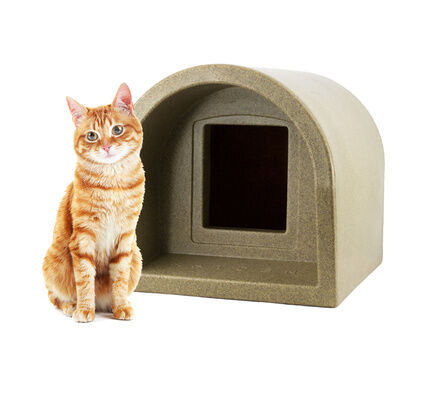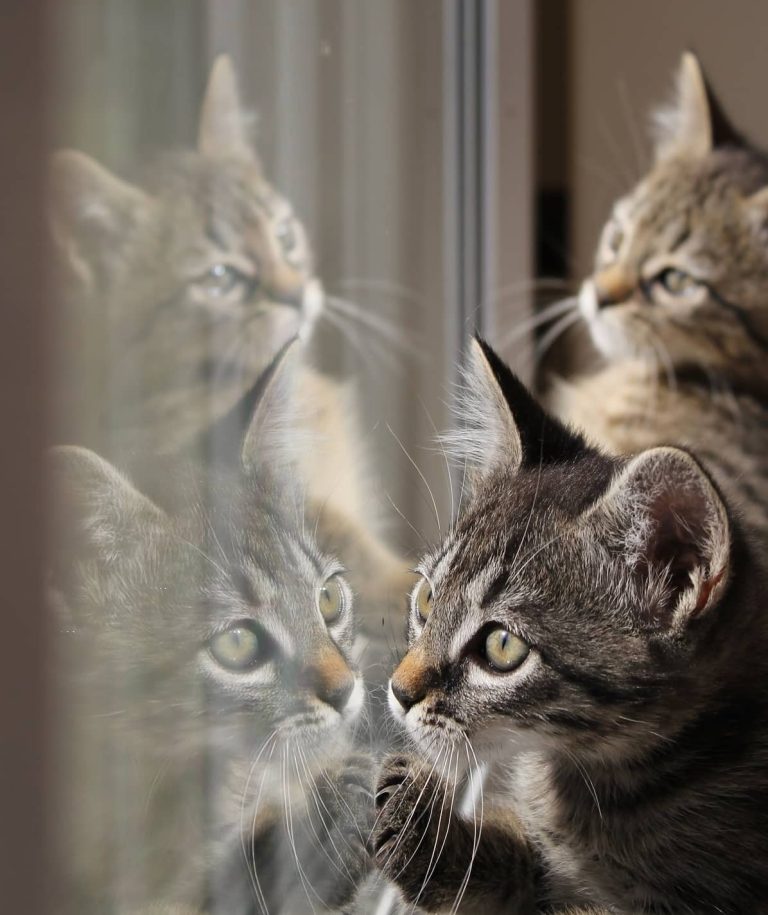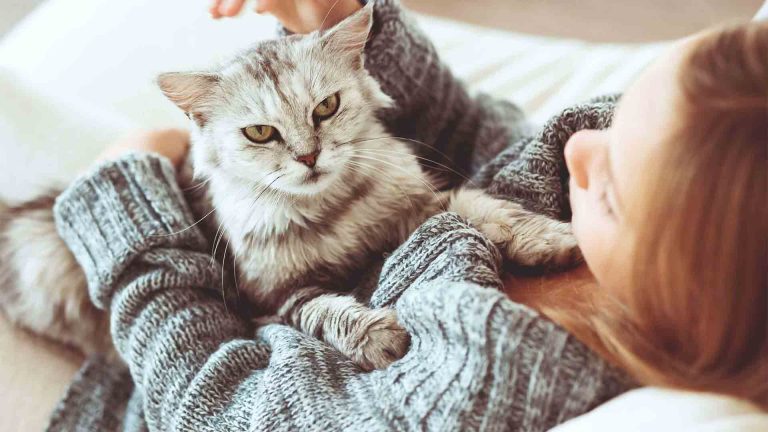Why Are Cats So Stupid? Is My Cat Dumb?
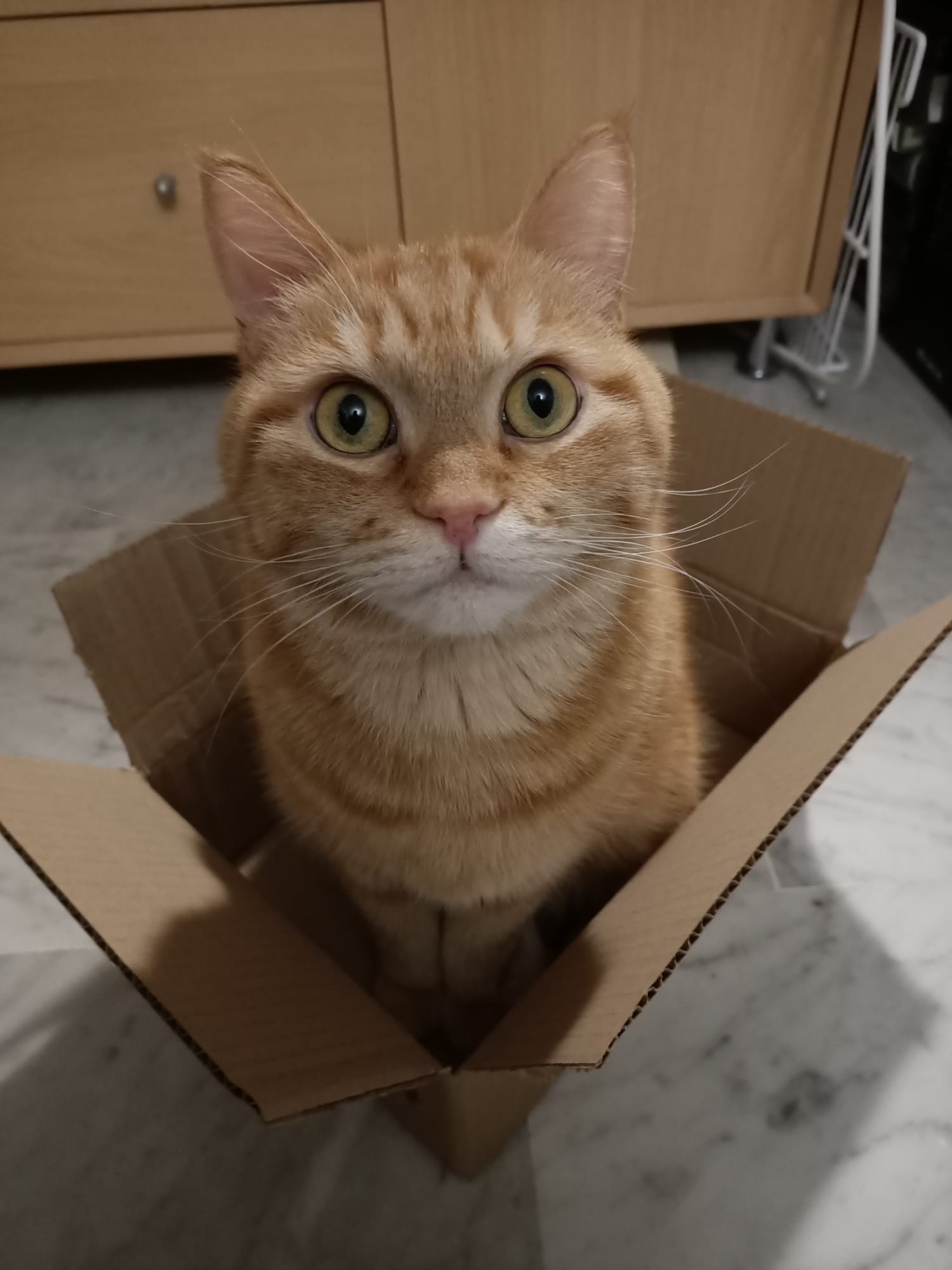
Cats exhibit behaviors that some may perceive as stupidity, but they are not actually dumb. Cats have unique instincts and behaviors that are different from humans, leading to misunderstandings about their intelligence.
While cats may not possess the same problem-solving abilities as dogs, they are smart in their own way, excelling at skills like hunting and agility. Consequently, cats’ behavior may appear silly or nonsensical to humans, but it is an integral part of their nature and instincts.
Understanding and appreciating these quirks can enhance the bond between cats and their owners, highlighting the intelligence cats possess. So, instead of labeling cats as stupid, it is more accurate to recognize and embrace their distinct and fascinating characteristics.
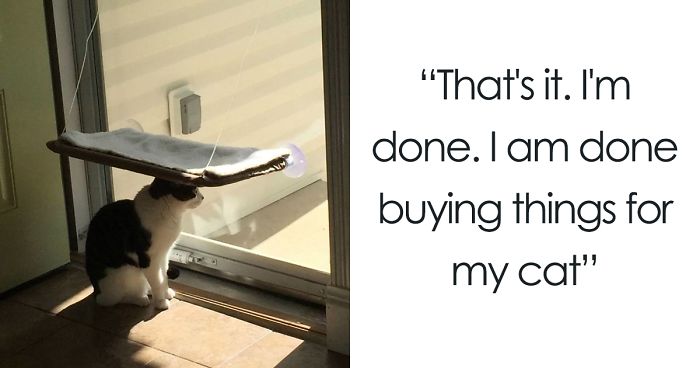
Credit: www.boredpanda.com
Cats’ Unusual Behaviors
Cats exhibit unusual behaviors due to their unique instincts and natural curiosity. While some may perceive them as “stupid,” cats possess different intelligence levels and excel in areas like problem-solving and agility. Understanding their behavior can help owners create a stimulating environment for their feline companions.
When it comes to cats, it’s no surprise that they have some rather peculiar behaviors. From their curiosity-driven actions to their unpredictable behavior patterns, these fascinating felines continue to leave us pondering, “Why are cats so stupid? Is my cat dumb?” In this section, we’ll delve into the unique characteristics that make cats act in ways that sometimes seem foolish. So, let’s explore the reasons why our furry friends exhibit these unusual behaviors.
Curiosity-driven Actions
One of the most well-known traits of cats is their inherent curiosity. This curiosity often leads them to embark on daring explorations or engage in peculiar actions that could bewilder even the most experienced cat owner. Cats’ relentless desire to investigate their surroundings stems from their instinctual nature as predators. They are hardwired to roam, hunt, and satisfy their curious instincts. Consequently, you may find your cat investigating every nook and cranny of your home, jumping into boxes or bags, or even perching themselves in unexpected places.
While these acts may appear silly or purposeless, they serve as a means for cats to sharpen their hunting skills, maintain their agility, and simply satisfy their innate curiosity. Therefore, it’s important to remember that these curiosity-driven behaviors are a natural part of their feline DNA and are not indicative of their intelligence or lack thereof.
Unpredictable Behavior Patterns
Cats are notorious for their unpredictable behavior patterns, which can leave even the most attentive cat owner scratching their head in bewilderment. From sudden bursts of energy, known as “zoomies,” to random bouts of nighttime zooming or yowling sessions, our feline companions certainly know how to keep us on our toes.
This unpredictable behavior can be attributed to various factors, including their instinctual hunting instincts, mood changes, or even boredom. Cats have been observed to exhibit erratic behavior when they’re feeling stressed or have excess energy to burn. Moreover, changes in their surroundings, such as introducing a new family member or rearranging furniture, can also trigger unusual behaviors.
Understanding and accommodating these unpredictable behavior patterns is key to providing a stimulating environment for your feline friend. Offering interactive toys, regular playtime, and providing ample hiding spots or vertical spaces for them to explore can help channel their energy in a more constructive and less baffling manner.
While cats’ unusual behaviors may occasionally leave us questioning their intelligence, it’s crucial to acknowledge that these actions are inherently ingrained within their nature. From their curiosity-driven actions to their unpredictable behavior patterns, cats continue to captivate us with their enigmatic ways. And perhaps, it is precisely these quirks that make them such intriguing and beloved companions for individuals around the globe.
Factors Influencing Cat Intelligence
Have you ever wondered why some cats seem to be more intelligent than others? It’s a common question among cat owners. While it may be tempting to label a less intelligent cat as “stupid,” there are actually several factors that can influence a cat’s intelligence. Understanding these factors can help you better appreciate your furry friend’s unique abilities and behavior. In this article, we will explore two key factors that play a role in feline intelligence: genetics and breed characteristics, and early socialization and environmental factors.
Genetics And Breed Characteristics
Just as genetics play a significant role in determining human intelligence, they also contribute to the intelligence of cats. Different breeds have distinct traits that can affect their cognitive abilities and problem-solving skills. For example, some breeds, like the Siamese or Maine Coon, are known for being highly intelligent. These cats are often quick learners, adept at puzzle toys, and excel at interactive play.
On the other hand, certain breeds may be less intellectually inclined. For instance, the Persian breed tends to have a more laid-back and relaxed nature. While not inherently less intelligent, Persians may not display the same problem-solving abilities or curiosity as more active and intelligent breeds.
| Intelligent Breeds | Less Inteligent Breeds |
|---|---|
| Siamese | Persian |
| Maine Coon | Ragdoll |
| Bengal | Persian |
Early Socialization And Environmental Factors
Another significant factor impacting a cat’s intelligence is the level of early socialization it receives and the environment in which it grows up. The critical period for socialization occurs during the initial weeks of a kitten’s life. Positive interactions with humans, other animals, and exposure to various stimuli during this time can greatly impact a cat’s intellectual development.
Cats that have been exposed to a variety of experiences and environments during their early weeks are generally more confident, curious, and eager to learn. They tend to be more adaptable and exhibit better problem-solving abilities. Conversely, cats with limited early socialization or exposure to new stimuli may remain more cautious and less intellectually inclined.
To enhance your cat’s intelligence and mental stimulation, provide a stimulating environment and interactive toys. Regular playtime, training sessions, and puzzle toys can help stimulate your cat’s mind and encourage problem-solving skills.
- Expose your cat to different sounds, smells, and textures.
- Offer a variety of toys that encourage hunting and problem-solving.
- Engage your cat in interactive play sessions.
- Teach your cat basic commands through positive reinforcement training.
Remember, every cat is unique, and individual differences can still exist within breeds. So, while genetics and early socialization significantly influence a cat’s intelligence, it’s essential to embrace your furry friend’s special qualities and provide them with the love and care they need.
Cat’s Cognitive Abilities
When it comes to cats, their cognitive abilities have often been a topic of fascination. Many cat owners find themselves wondering about their feline friend’s problem-solving skills, memory, and learning capabilities. In this section, we will delve into these aspects to gain a better understanding of why cats sometimes display behaviors that may seem silly or unintelligent.
Problem-solving Skills
Cats possess a certain level of problem-solving skills that vary from one individual to another. While some cats demonstrate remarkable resourcefulness in finding solutions, others may struggle in certain situations. It is important to remember that cats are independent creatures with a unique way of approaching challenges.
One way cats showcase their problem-solving abilities is through hunting behavior. Cats have evolved to be skilled hunters, and their stalking, pouncing, and capturing movements demonstrate their strategic planning and execution. Additionally, their curiosity and exploration instincts enable them to discover innovative ways to access elevated spaces or hidden objects.
Memory And Learning Capabilities
Understanding a cat’s memory and learning capabilities can shed light on their behavior and trainability. While cats may not possess the same level of memory retention as dogs, they still have a remarkable ability to recall information and learn from experiences.
Cats have what is known as “episodic memory,” allowing them to remember specific events or incidents. This memory helps them associate positive or negative experiences with certain stimuli, helping shape their behavior and responses. For example, if a cat associates climbing onto a kitchen counter with receiving a treat, they are likely to repeat the behavior in hopes of receiving the same reward.
In addition to episodic memory, cats also exhibit excellent spatial memory. They are capable of remembering the layout of their environment, which helps them navigate through familiar territories and locate resources like food or water.
- Cats possess problem-solving skills that vary from one individual to another
- They display remarkable resourcefulness in finding solutions and demonstrate strategic planning and execution
- Cats are curious and use their exploration instincts to discover innovative ways to access elevated spaces or hidden objects
- Cats have episodic memory, allowing them to remember specific events or incidents
- They can associate positive or negative experiences with certain stimuli
- Spatial memory helps cats navigate through familiar territories and locate resources like food or water
Understanding the cognitive abilities of cats can help us appreciate their unique qualities and behaviors. While they may not always demonstrate the problem-solving skills or memory capabilities we expect, it is important to remember that cats have their own individual intelligence and ways of interacting with the world around them.
Common Misconceptions About Cat Intelligence
Cat intelligence is often misunderstood, leading to the misconception that cats are unintelligent. However, cats possess their own unique intelligence, which may be different from what we expect. Understanding their behavior and abilities can help dispel the notion that cats are dumb.
The Difference Between Instinct And Intelligence
One of the most common misconceptions about cat intelligence stems from our limited understanding of their behaviors. Cats possess a sophisticated set of instincts honed over thousands of years of evolution. This instinctual behavior often leads to the assumption that they lack intelligence. However, it is important to distinguish between instinct and intelligence.
Instinct drives a cat’s inherent ability to survive and thrive in its environment. It encompasses activities like hunting, grooming, and territorial marking. These behaviors are hardwired into a cat’s DNA and do not require conscious thought or reasoning. Think of instinct as a set of programmed responses to specific stimuli.
On the other hand, intelligence refers to a creature’s ability to learn, adapt, and problem-solve. While cats may not excel in areas traditionally associated with human intelligence, such as language or abstract thinking, they display an array of intelligent behaviors specific to their needs. Understanding this distinction is vital in dispelling the misconception that cats are inherently stupid.
Perception Of Intelligence Based On Human Standards
Another factor that leads to the perception of cats being stupid is the tendency to judge their intelligence solely based on human standards. Humans have a long history of ascribing intelligence based on our own abilities and predispositions. This anthropocentric bias often fails to recognize the unique and complex cognitive abilities of other species.
Cats, with their own distinct set of instincts and sensory perceptions, navigate the world in ways that may seem foreign to us. For instance, their ability to effortlessly balance and maneuver in tight spaces showcases their exceptional coordination and spatial awareness. Furthermore, their acute senses of hearing and sight allow them to detect subtle movements and identify potential prey with astonishing accuracy.
It is crucial to appreciate and respect the diverse range of intelligence found in different species, including cats. By avoiding the trap of comparing them to humans, we can begin to appreciate the unique cognitive abilities cats possess and discard the belief that they are simply “dumb.”
Understanding And Appreciating Our Cats
Cats have unique intelligence and behavior patterns that may seem unconventional to us. Rather than being dumb, their actions are driven by their instincts, independence, and natural curiosity. These qualities contribute to their charm and make them fascinating pets to understand and appreciate.
Introduction: Understanding And Appreciating Our Cats
Our feline friends have never ceased to amuse and bewilder us with their quirky antics and sometimes, what may appear as foolish behavior. However, before we hastily label our beloved cats as “stupid,” it is important to take a step back and truly understand and appreciate their unique nature. Recognizing their individuality and unique traits and building a strong bond with them through understanding can deepen our relationship with these remarkable creatures.
Recognizing Individuality And Unique Traits Of Cats
Every cat possesses a distinct personality as unique as their paw prints. Just like humans, cats differ in intelligence, temperament, and ability to adapt to their surroundings. Recognizing and appreciating their individuality is essential to forming a deeper connection with our feline companions.
Cats, although instinctual hunters, are also highly independent creatures. They possess an innate curiosity, which often leads them to engage in actions that may seem peculiar to us. These behaviors are not a reflection of their intelligence or lack thereof, but rather an expression of their natural instincts and inquisitive nature.
Furthermore, cats have a remarkable sensory system. Their acute hearing allows them to detect sounds that are inaudible to us and their keen eyesight enables them to perceive the slightest movement, making even the most seemingly ordinary object or shadow captivating to them. By understanding and appreciating these unique traits, we can better relate to our cats and provide them with an environment that nourishes their natural instincts.
Building A Strong Bond With Our Cats Through Understanding
Building a strong bond with our cats goes beyond surface-level interactions. It requires a deeper understanding of their needs, preferences, and behaviors. By observing our cats closely, we can begin decoding their body language, vocal cues, and even the subtlest of their behavioral patterns.
Taking the time to understand our cats helps us identify when they are feeling stressed, anxious, or unwell. Cats rely on us to provide them with a safe and comfortable environment, and by being attuned to their needs, we can ensure their well-being. This understanding fosters trust, allowing us to form a stronger bond with our feline companions.
Additionally, engaging in interactive play sessions tailored to their preferences can stimulate their minds and enhance their well-being. It also establishes a positive association with us and further deepens our connection. Understanding our cats’ unique characteristics enables us to create an enriching and fulfilling life for them, ensuring they feel loved and appreciated.
Our cats possess their own brand of intelligence, which may not conform to human standards, but is equally valuable. By recognizing and appreciating their individuality, unique traits, and building a strong bond through understanding, we can create a harmonious relationship that celebrates their distinct nature. So, let us embrace the quirks and antics of our feline friends, knowing that their perceived “stupidity” is a beautiful testament to the diversity of intelligence in the animal kingdom.
Frequently Asked Questions For Why Are Cats So Stupid? Is My Cat Dumb?
Why Do Cats Sometimes Act Silly Or Foolish?
Cats may exhibit playful or silly behavior as a natural part of their instincts. It helps them stay alert and fit, maintain their hunting skills, and release pent-up energy. Such behavior is not an indicator of their intelligence but rather a way for them to have fun and ensure their well-being.
Can Cats Understand Complex Tasks Or Commands?
While cats may not understand intricate commands like dogs do, they are highly intelligent and can learn simple tasks and commands. Cats rely more on body language and subtle cues. Teaching them basic tricks like using a litter box or responding to their name can be accomplished with patience and effective training techniques.
Are All Cats Equally Intelligent?
Cats, like humans, have individual differences in intelligence. Each cat has its own unique combination of genetic factors and upbringing that contribute to their intelligence levels. Some cats may be more curious and adaptable, while others may be more independent and focused on their individual interests.
Conclusion
To sum up, cats may appear “stupid” or “dumb” due to their independent and mysterious nature, but they are anything but unintelligent. Their behavior is often misunderstood, and they possess innate instincts that have enabled them to adapt and survive throughout history.
Understanding their unique abilities and behaviors can help us appreciate their intelligence and the special bond we share with our feline companions. So next time you find yourself questioning your cat’s intelligence, remember that they are clever creatures with their own ways of showing it.

